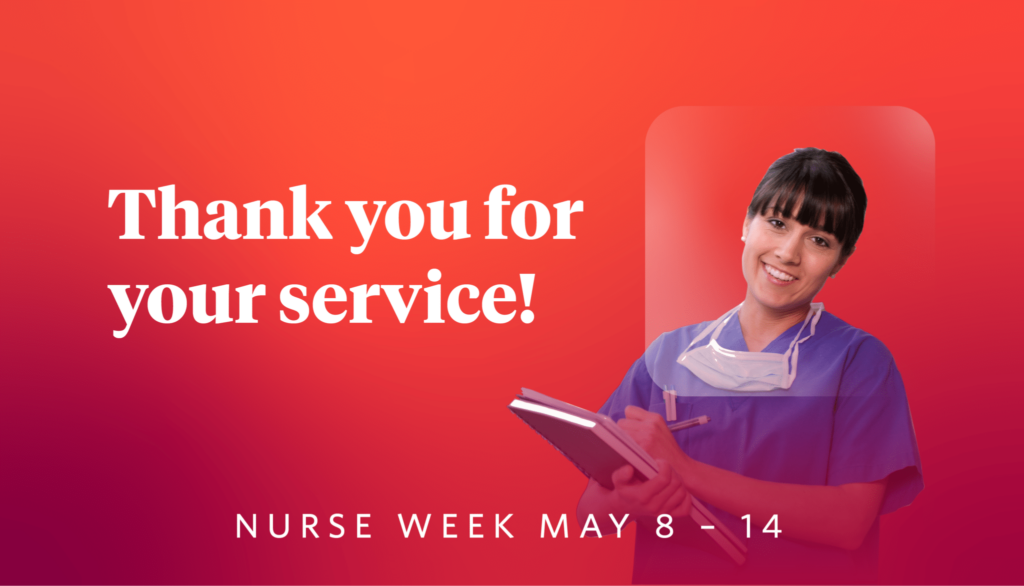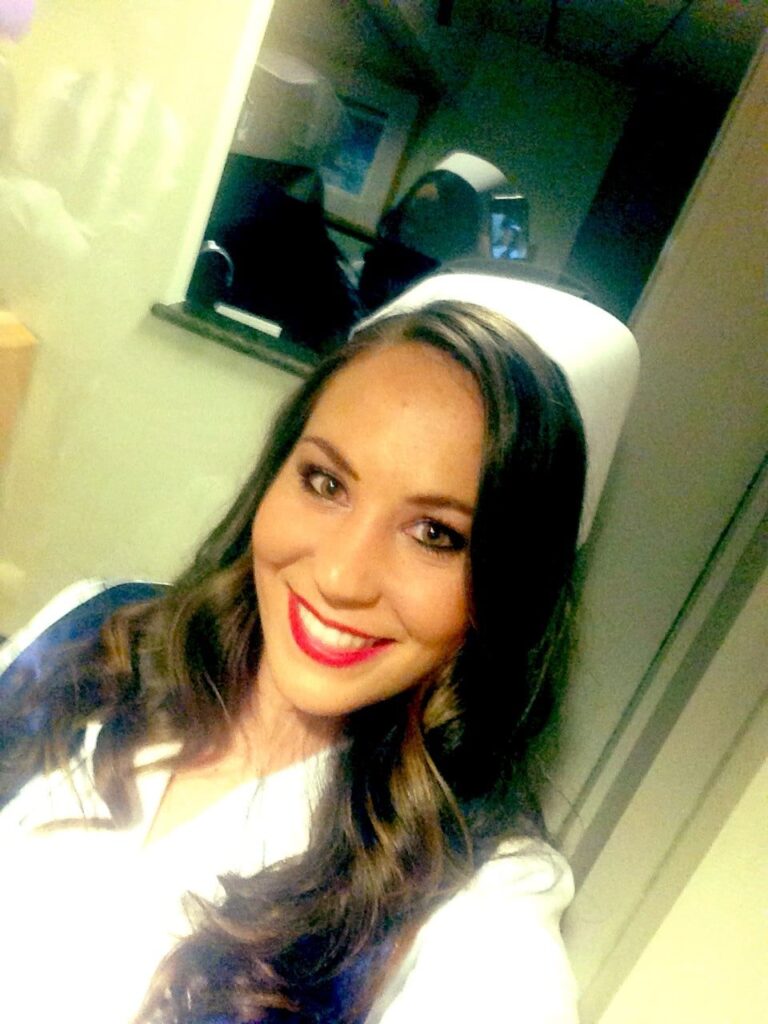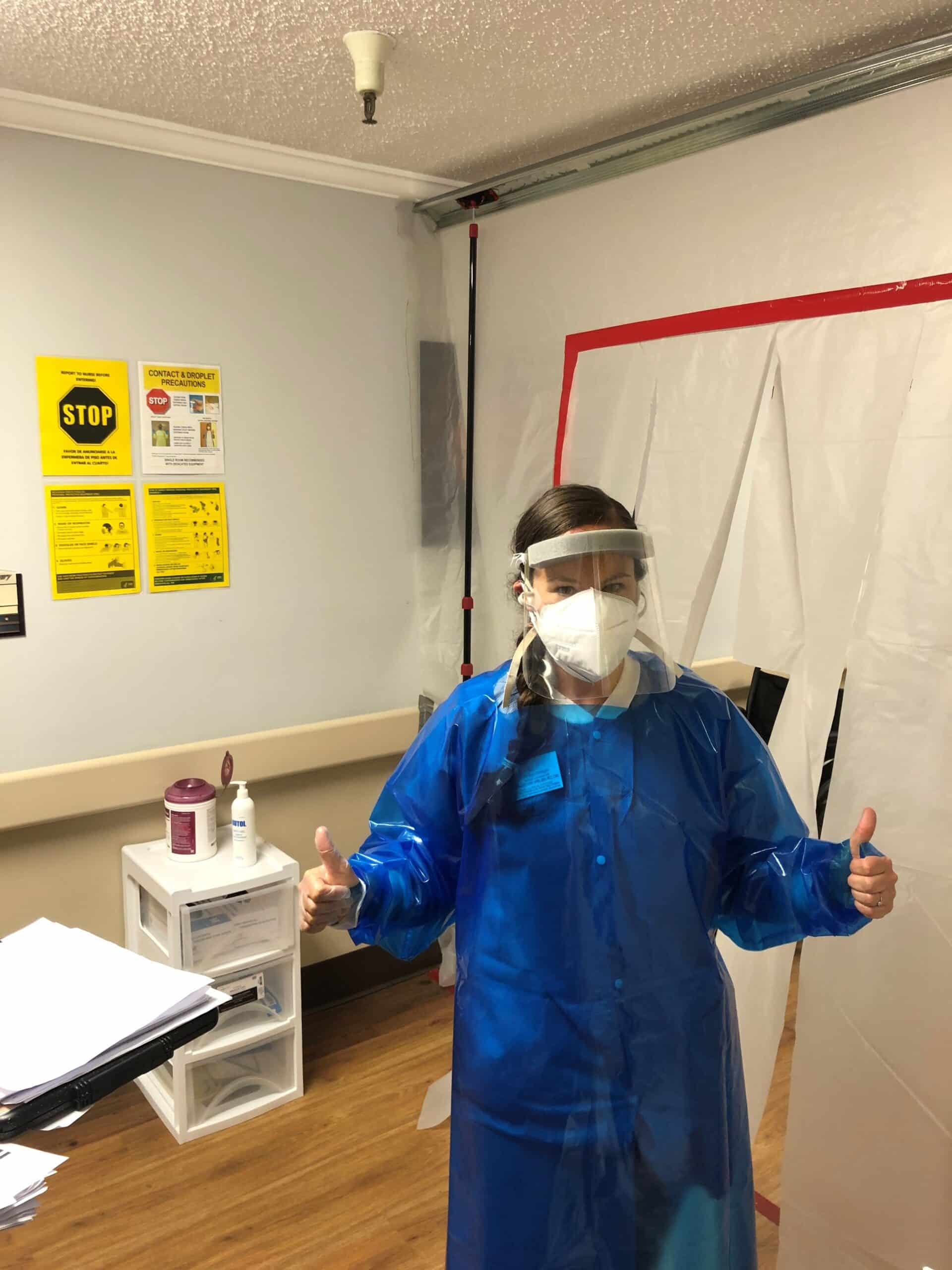May 12, 2022 | Net Health
3 Minute Read
Nurse Week Story: Interview with Tara Frazier – Net Health

To round out our celebration of Nurse Week, May 8 – 14, the Wound Care Team at Net Health recognizes yet another inspiring example of the dedication and commitment of nurses in the field with the story of Tara Frazier, AGNP- BC, APRN, MSN, WCC . Read more of her journey in the profession below.
What led you to a career as a wound care nurse?

In nursing school, I was the only one in clinicals running towards the wounds instead of away from them! I knew early on that wound care was my calling. I have always been fascinated by wounds and how the body can heal itself. When I graduated in 2007 as an LVN, I started work at a skilled nursing facility as a treatment nurse. At the time, I knew one thing and one thing only: that I loved healing patients. But I had no idea how to – there wasn’t any wound training in nursing school or on the job, so I ended up doing a lot of my research. Luckily, in 2009, Dr. Robert Marriott took me under his wing as a mentor and I started my new job working with Advantage Surgical Wound Care. We would round all over California providing bedside wound care consultations while I was going to school for my RN. Becoming a wound care Nurse Practitioner was my goal, so I kept going back to school until I finally got there.
Some [patients] have struggled with chronic wounds for 5 to 20 + years. With excellent wound care, you can be a part of healing someone who may have lost hope. Something neat about wound care, it’s tangible. You can witness healing and overall patient improvements right before your eyes. You can empower a patient to heal themselves and be a part of taking away the burden of a wound. It’s a beautiful thing and a highly rewarding specialty. That’s what drew me to wound care nursing and has kept me in it for so long.
Is there a particular story that sticks out in your mind that represents what wound care nursing is all about?
I cared for an 82-year-old woman who suffered from six chronic venous insufficiency ulcers to her bilateral legs for years. She had been told her swelling and wounds were from “too much salt” and placed on Lasix for years. Her chart was branded with the label “non-compliant.” She had stopped participating in social activities she enjoyed because of the embarrassment of her wounds. The moment I walked into the room, her legs were screaming for compression! This was the first time she had heard the words venous insufficiency. Very shortly after meeting her, we grew a special connection. We would talk about her life, and she would share her pearls of wisdom with me. Soon, our dressing change visits turned into beauty hour. I’d help her put on makeup, false eyelashes and pick out jewelry. I was so glad to help this woman, but she is the one who taught me so much about compassion and just being a good human being. I never once witnessed any “noncompliance” with compression or leg elevation. She just needed to understand the disease process and take ownership of her care. The icing on the cake, after six months of treatment, all six wounds were healed! We had a little celebration for her and toasted her success with glasses of sparkling cider in plastic champagne flutes. Her gratitude was palpable, and I felt grateful to be a part of it. Moments like that are why I do what I do.
How has technology changed wound care nursing over the past few years?
Wound care technology has advanced significantly in the last few years. Net Health has developed some cool technologies in recent years. Our specialty is seeing first-hand the value of integrating technology to improve healing trajectory and track outcomes. Historically, wound care has been more of a subjective practice. If multiple clinicians looked at a wound, each one might interpret it differently. The nice part of wound care technology is that it’s standardizing practice and bringing incredible advances in science to the bedside; I’m looking forward to different contributions brought to the field and what’s to come; it’s an exciting time for wound care.
What is the biggest misperception even those in healthcare have about wound care?
Some people think it is just about dressing changes. But it’s so much more than just putting on a bandage. It is about treating the whole patient and managing the intrinsic and extrinsic factors. I love the statement, “Treat the patient as a whole, not just the hole in the patient.” It’s so true. Wound care is figuring out the cause and involving interdisciplinary collaboration with primary care, dietary, PT, OT, vascular, plastics and more.
What are some of the challenges you face with getting patients involved in care?
We don’t heal wounds; the patients do. It takes a village. Every wound care clinician gets their fair share of challenging cases. However, I strongly believe it goes back to educating our patients before we deem them “non-compliant.” If we take the time to educate our patients in layman’s terms about what they can do to heal themselves and why it’s important, you will see more buy-in. Our job is to empower patients and give them the tools and resources to take ownership of their healing. We should consider and evaluate any potential barriers, such as accessing care, limited supplies, resources, or overall lack of understanding. I’ve had multiple patients using T-shirts, toilet paper, or paper towels to do their dressings simply because they could not afford supplies. Learn the muddy healthcare system and see how you can help your patients navigate through it. For example, perhaps, there are cultural or religious beliefs that have not been addressed or discussed. Now, don’t get me wrong, we all encounter patients that do not want to do what we recommend or can be challenging to work with. But…have you ever tried wearing a UNNA boot and four-layer wrap on a hot summer day in California? I have, and it’s miserable! Put yourself in your patients’ shoes, and you may realize that things sometimes are much easier said than done.

Is this a field you’d recommend to young nurses today?
I recommend this field to any nurses who find themselves like I was, intrigued, fascinated, and curious about wound healing. For anyone whose favorite part of clinicals was when they followed the wound nurse, this is for you! (If you don’t have a squeamish stomach – that’s a prerequisite.) For any nurse (young and old), I recommend finding a specialty or field that gives you that spark of joy, excitement, and passion. Whether it be Psych, OB, pediatrics, or wound care. Find a position that makes you want to be the best at it. Not because someone else thinks it’s an excellent field. Our patients deserve the best wound care providers and nurses. Wound care people are an interesting group of individuals that aren’t like the rest! For those who share our passion, we welcome you to our strange wound care family with open arms!
More about Tara
Tara Frazier, AGNP- BC, APRN, MSN, WCC, is the Chief Clinical Officer for Advantage Surgical and Wound Care. She’s been with the company for more than 12 years, serving in various roles Director of Nursing & Training and Nurse Educator. A native Californian from Long Beach, Ms. Frazier received her Master of Science in Nursing & Adult Gerontology Primary Care Nurse Practitioner from California State University Long Beach. Ms. Frazier has served as a certified wound care clinician and educator in hundreds of LTC facilities nationwide for the past decade. For more information, visit https://www.advantagewoundcare.org.





